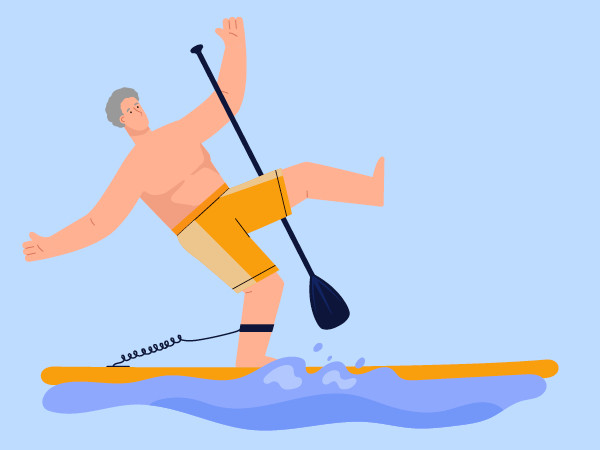
Tim Akin MW: Playing for laughs
At first sight, it looked like a PR disaster. Sir Ed Davey, leader of the Liberal Democrats, was filmed falling off a paddleboard into Lake Windermere five times. He’s a middle-aged bloke with a paunch and no sense of balance. Politicians do all sorts of silly things by mistake – members of the public can ambush them too – but Sir Ed’s aquatic pratfall was deliberate. He’s done a number of similar things campaigning for July’s general election.
And guess what? It seems to be working. At a time when global politics is getting scarier by the day, Sir Ed comes across as a person who doesn’t take himself too seriously. Not everyone will agree, but he seems normal, relatable and authentic. More to the point, the slapstick doesn’t appear to have undermined the seriousness of what he has to say about the NHS or river pollution. If anything, having a sense of humour has helped him to cut through to the public.
Is there a message for the international wine business in Sir Ed’s antics? I think there is and I’ll get to it in a moment. But first an observation. Everyone in our trade would acknowledge that there’s too much wine in the world right now. They would also admit that making the stuff is the easy bit. Selling it is way, way harder.
One of my more depressing experiences at Prowein this year was walking through the echoing French hall each morning en route to the much busier Spanish and New World pavilions. It was tumbleweed time. Who will buy all these wines? How does, say, a co-operative in the Languedoc, Loire Valley or the Entre-Deux-Mers find customers? The problem isn’t uniquely French, of course. Lots of wine regions have vats full of unsold wine. And the problem won’t go away. 2024 is looking like a tricky growing season in all sorts of places in the Northern Hemisphere.
One solution – a short-term one by definition – is to cut prices and dump wine. That drains those tanks and barrels, but it doesn’t do much for brand equity. That’s where Sir Ed’s example comes in. Successful wineries invariably have certain things in common. They are true to their own values and they feel secure in their own skins.
↓
Brand engagement
I also think that levity and a sense of fun are under-utilised in the wine business. Make consumers smile and they are more likely to engage with your brand. This probably doesn’t apply in the fine wine sector, where seriousness is almost de rigueur, not least among collectors. It wouldn’t make much sense for Domaine de la Romanée-Conti, Opus One or Penfolds Grange to play it for laughs. But the fine wine sector is comparatively small. That leaves a lot of space for other producers.
The trick – and it’s a balancing act that requires no little skill – is to have fun without undermining the perceived quality of your wine. Novelty brands like Cat’s Pee on a Gooseberry Bush, Fat Bastard, Arrogant Frog, Languedog, Mad Housewife or Horse’s Ass are cases in point. Amusing enough perhaps, but not the kind of thing you’d want to take to a dinner party. People laugh once, but that’s it.
Two examples of wineries that have used humour to good effect are Frog’s Leap in the Napa Valley and Fairview in South Africa with its Goats do Roam range. The former adopted Kermit the frog’s motto – “Time’s Fun When You’re Having Flies” – and included an ironic instruction to consumers beneath the obligatory Government Health Warning: “Open other end.” Goats do Roam is, obviously, a pun on Côtes du Rhône, but it also ties in with the real-life goats at the entrance to the winery as well as the very successful cheese that Charles Back produces from their milk. That authenticity again.
And what about France? Is there an example those bored producers at Prowein could follow? The one that stands out for me is Domaine Jones in the Languedoc and neighbouring Roussillon regions. Katie Jones has done all sorts of things to market her wines, including vineyard rambles on Instagram, an adopt an old vine scheme, where the vine itself “communicates” with its patron, cartoons and amusing names like The Hairy Grenache. “To make humour work,” she says, “you need to understand your target market. And you have to avoid being too technical without patronising people or undermining your quality.” If that means falling off a paddleboard to order, so be it.




